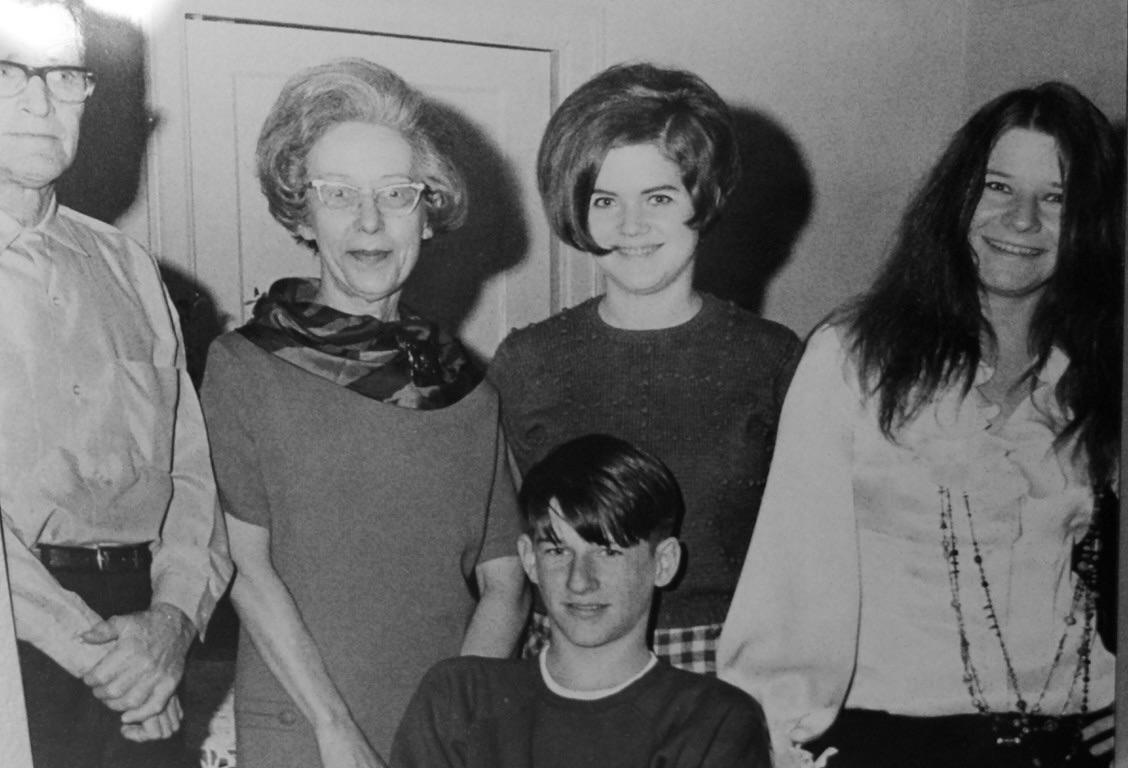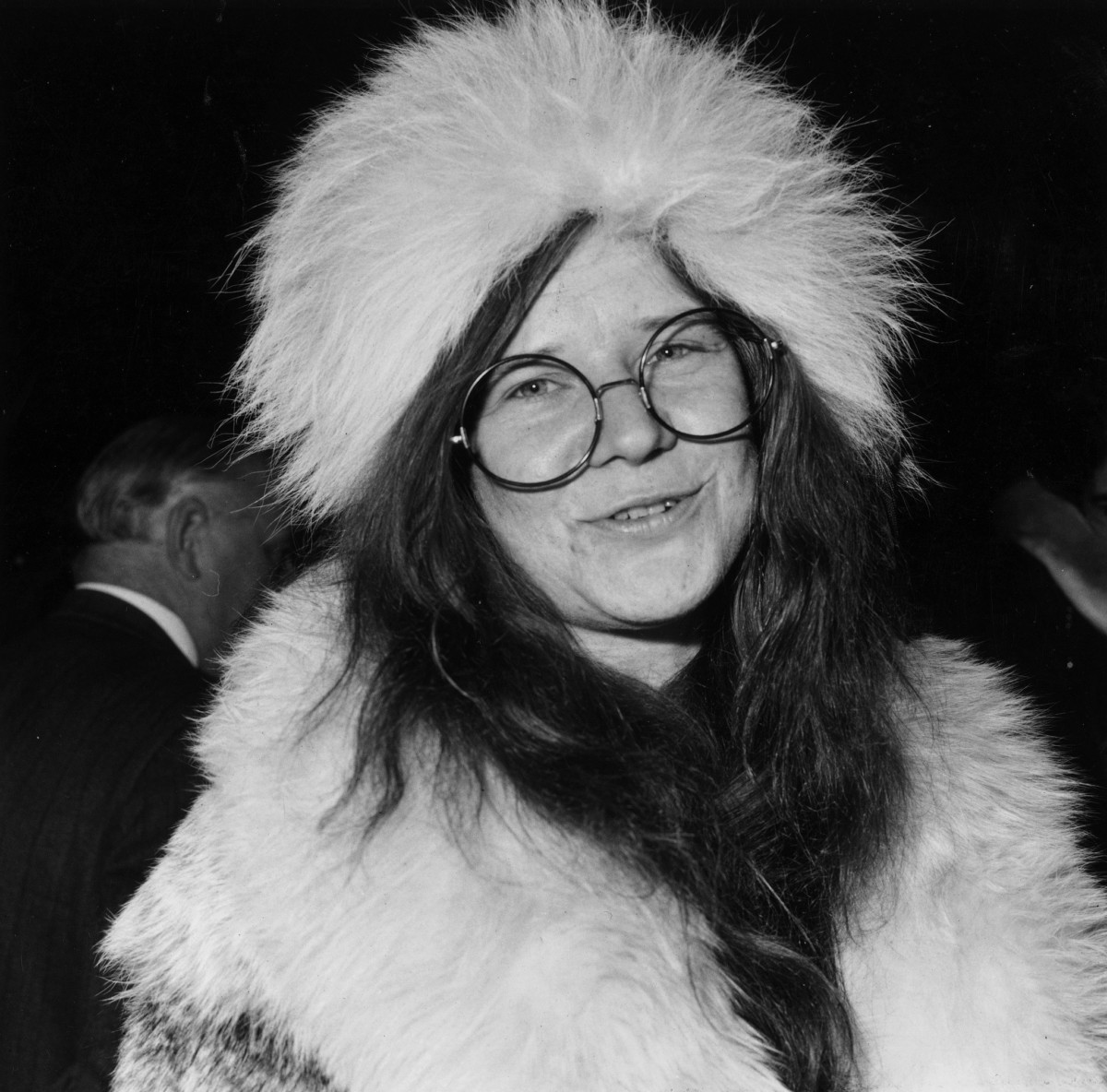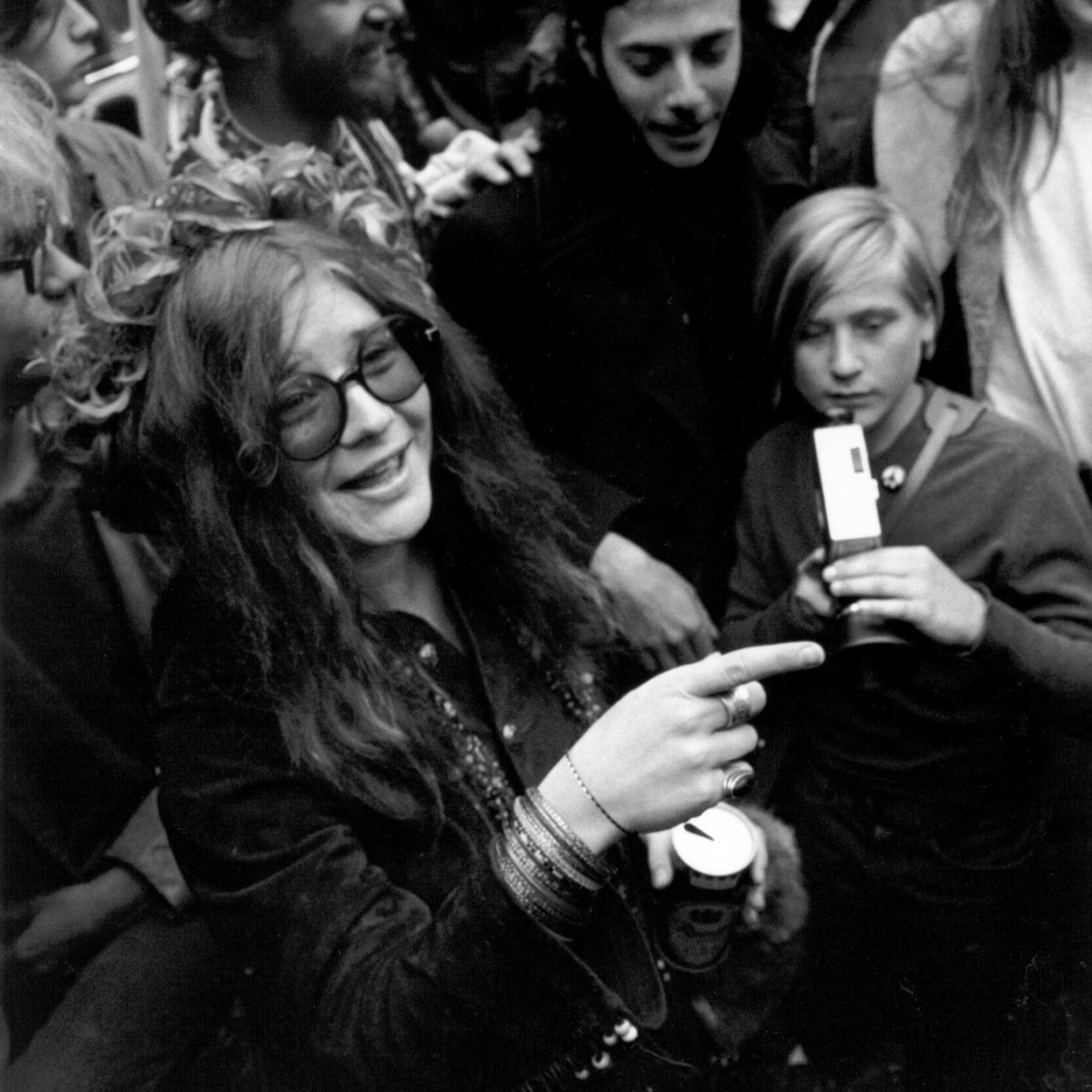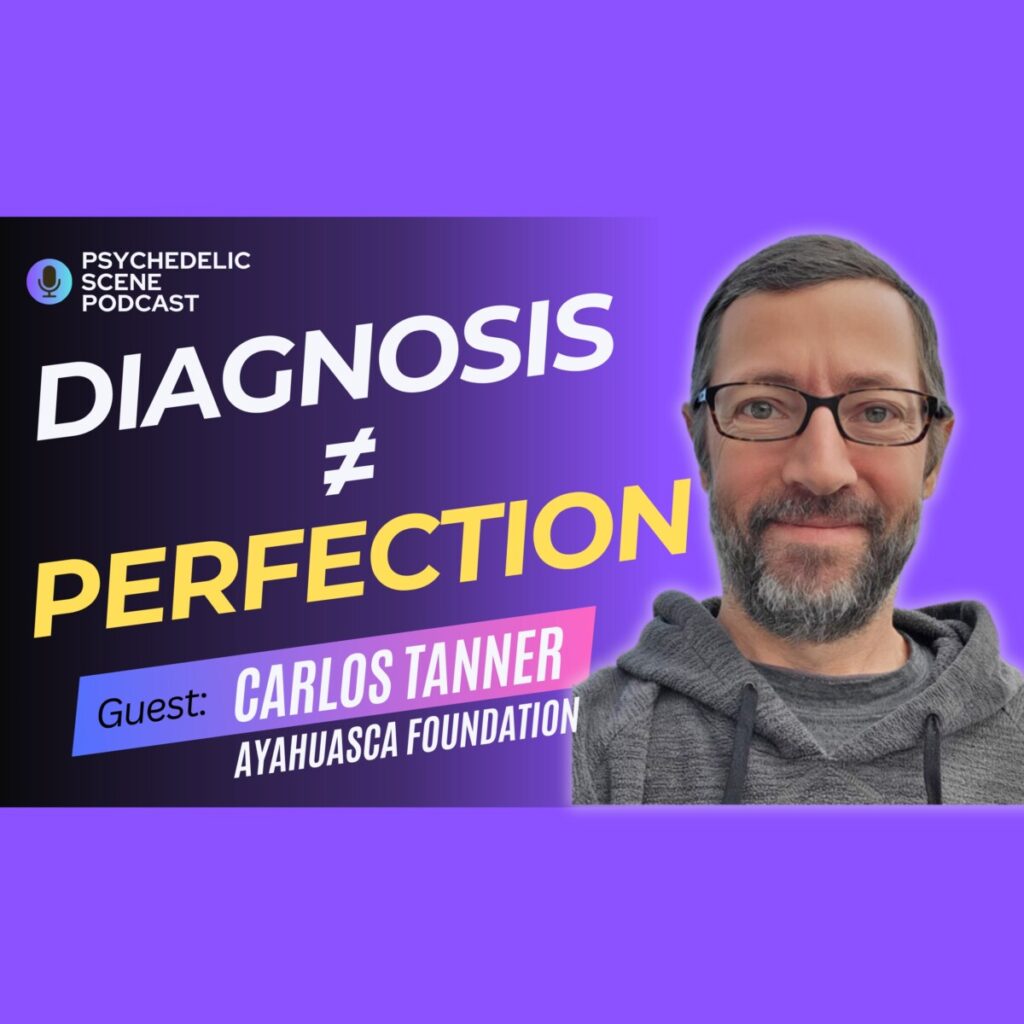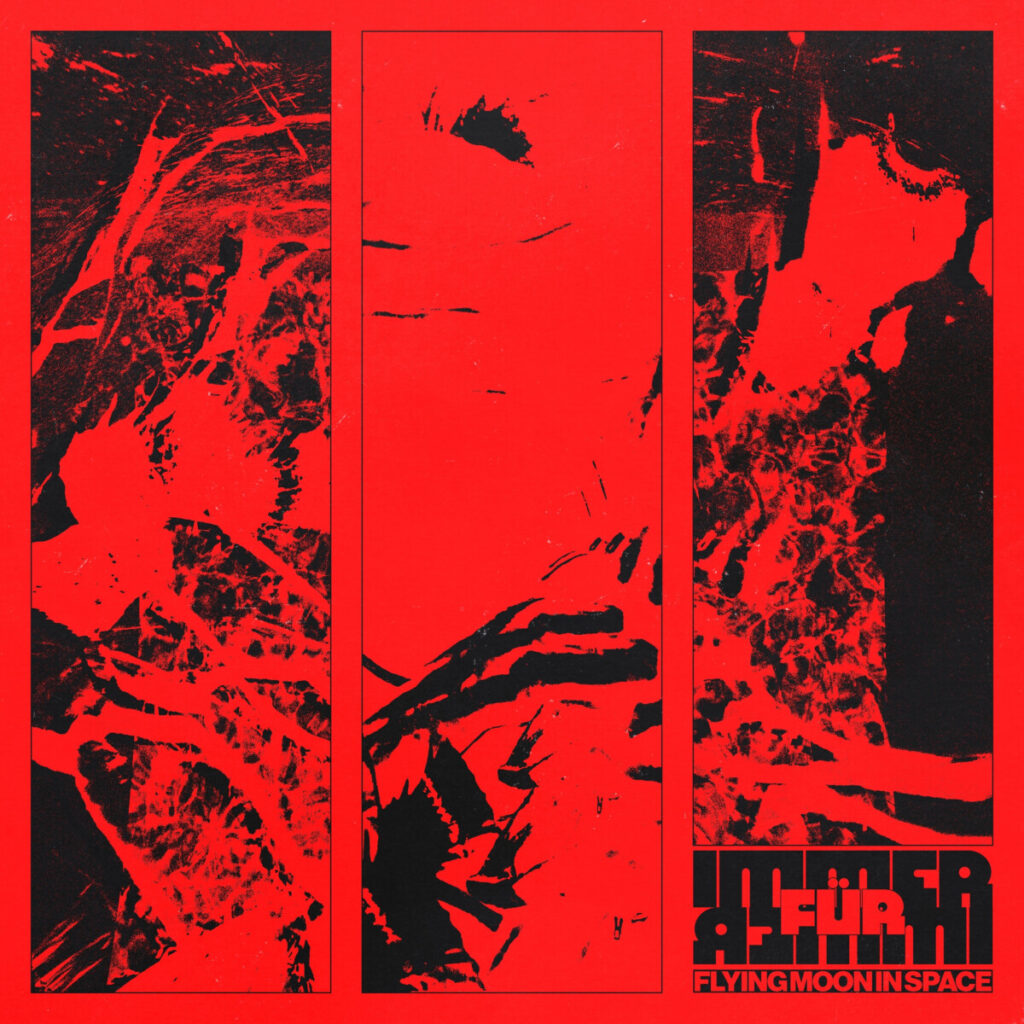Interview with Michael Joplin, brother of Janis Joplin
Interview with Michael Joplin, brother of Janis Joplin
LeValley:
I’m Jason LeValley with Psychedelic Scene and I’m here with Michael Joplin, who is Janis’s brother. She was your older sister, I think.
Joplin:
That’s correct.
LeValley:
By the way, thanks for joining me.
Janis was your older sister, and I was wondering what the age difference was between the two of you.
Joplin:
She was 10 years older than me.
LeValley:
Okay, so that’s pretty significant.
Joplin:
Yeah.
LeValley:
Can you share some memories of Janis as a sister before she became famous?
Joplin:
Well, if you’ve got any siblings, there’s beating ups and yelling and dinner and going to the store and getting ice cream. There was that. We went to school, rode bikes, all that stuff. Janis was around high school, and I’m trying to figure out how to go to elementary school. And she was a protector. She took care of her little baby brother and helped me do stuff. We just did stuff. We did a bunch of stuff together as a family unit. My parents were really good parents.
She took care of her little baby brother and helped me do stuff.
LeValley:
Great. How did the Joplin family influence Janis’s musical journey?
Joplin:
Well, that’s a good question. There’s a lot of different ways, though. My mother was a teacher–teaching women to be self-supporting, which was at that time, women to have jobs, period, and to have credit cards and bank accounts. She was teaching women how to work so they could be self-supporting. My dad was very interested in music and art. The music that they brought to us was mind-blowing in many respects. Mom was really into show tunes, hence like “Summertime”. We were exposed to all types of music at that time. Pop was very into classical music, and I remember him once, I’m coming out of the kitchen, he’s sitting in the living room listening to Cole Nedri and just weeping, literally in the music. That type of acceptance and reality of the art was very big in our house.
LeValley:
How did the family react when Janis first began gaining attention for her music?
Joplin:
Well, I mean, that had happened before fame or Big Brother or anything. She was singing mostly bluegrass or something, a lot of blues, but she was playing an autoharp because she couldn’t play guitar. She was a beatnik more, more of that type of music at that time. And it was just Janis singing. We all just like, “Oh, there it is”. It wasn’t weird. It was just there. Then Janis is going to go sing at some weird little club in Port Arthur. Okay. Great. See you later. Stay safe.
LeValley:
Okay.
Joplin:
When it became a different thing, when Big Brother happened, it was… I mean, Janis had gone out to California before to try to become famous, but didn’t quite make that, and came back to Texas hurting pretty hard up from abusing drugs pretty hard. And all of her friends got together and bought her a bus ticket home so she could go clean out. Janis came back to Port Arthur to clean up and get a job. She was just going to straighten out. She tried to do that for a while. San Francisco was lurking, however. Chet Helms got a hold of her and brought her out to San Francisco. Okay. She joined Big Brother. And your question, my parents were terrified of that because of her previous experience.
LeValley:
Her previous experience being what?
Joplin:
Well, I was saying that she had been out there and had to come back.
LeValley:
Oh, because she got involved in hard drugs.
Courtesy of Michael Joplin
Joplin:
Yeah. It was just what was happening at that time in that scene.
LeValley:
Yeah. Well, how did Janis’s fame impact your family dynamics?
Joplin:
Well, it still is. In a weird way. My older sister, this is the third interview I’ve done this week, and just that thing. It’s still impacting my family. It was very awkward for a long time. I didn’t really want to say my last name for decades because that would get into a whole conversation that I didn’t want. I just wanted to pay for my groceries or something on the telephone, have to spell your last name. I had to get in a conversation I didn’t want to get into. I just want to do something. But it brought us closer in many ways and brought us farther apart in many ways. I still think of myself as a protector of Janis. In dealing with Janis, my main job is to protect her from people, places, and things.
LeValley:
Were there any specific songs or performances of Janis’s that are particularly meaningful to you?
Joplin:
Well, that changes a lot. I mean, We saw her a couple of times and the songs. Like music, one day you’re into something and another day you’re into another thing. I always gravitate towards “Summertime”. I always gravitate towards “Ball and Chain”, and those are pretty radical different types of music. “Summertime” was part of our growing up, and “Ball and Chain” was Janis’s choice, and then Big Brother jazzed the hell out of it and made it into something else. Janis went with that flow and finished off with a big exclamation point.
LeValley:
She’s often considered a psychedelic rock artist, although she really seemed to be more interested in singing the blues. Was she inspired at all by psychedelic substances?
I didn’t really want to say my last name for decades because that would get into a whole conversation that I didn’t want.
Joplin:
Well, anybody that was in San Francisco at that time had to have been. That’s pretty much the deal. I mean, all the art was very psychedelic. Frankly, a lot of the bands were making a lot of music. Big Brother was choosing, with Janis, choosing to do some Broadway show tunes. People were taking other music and bringing it into that genre, and some of that into psychedelia or into rock. They were just making music off music that had influenced them. Since psychedelia didn’t really exist at that time. It became that because of what they were doing by taking something and running with it hard.
LeValley:
Janis was using hard drugs even before she got famous. At what point did you learn about her substance abuse issues?
Joplin:
Well, I mean, everybody knew about it. I mean, she didn’t make bones about it, really. She talked about it and drinking hard and all that stuff. It wasn’t secret stuff at that time. I mean, the times today are vastly different when you talk about somebody doing drugs and having problems than they were at that time. At that time, Janis made a lot of fame from that by her drinking Southern Comfort. That was a pretty hard-core thing, and she was running with it and using it to her advantage. So it started changing when people started dying, however, and her being one of the unfortunate forerunners of that. So, our whole view of the drug scene is different because of those deaths, I think.
LeValley:
Right. Certainly, she didn’t share that with your parents that she was using hard drugs.
Joplin:
No. Well, they knew when she had come back before that she had been into hard drugs. So that wasn’t a surprise to them. But the first time it was, the second going back to San Francisco scared them, and they had a right to be scared because of her past behavior. She was only 24 when she went back, so 25, like a kid. It’s terrifying to watch your children run into burning buildings.
LeValley:
Sure. And what do you think was behind that, behind the substance abuse issues and the hard drinking?
Joplin:
Well, I mean, what we know about alcoholism and drug addiction, there’s not always some glaring thing behind it. I mean, Janis was… I mean, everybody I knew in high school felt like they didn’t belong. I still talk to people my age that feel like they don’t belong. So nothing is really… That’s still there. And Janis, in our little town, was extremely concerned in a conservative town, and Janis spoke up against racial inequality, and that got a lot of flak. She dressed a little different, and that got a lot of flak. So, a lot of the stuff was self-generated without her even knowing that that was happening.
Jason LeValley:
She was teased relentlessly, I believe. I mean, that’s what I’ve read.
Michael Joplin:
Yeah. When you do anything different in high school age, you’re only going to get crap. I mean, you’re not going to just get like, ‘Oh, we love you to death’. She did find a group of people that approached her, and they became fast friends. So, she had both sides, but they were the beats, the beatnik guys. And she started singing weird, and they loved her to death for that.
LeValley:
What do you think is the most misunderstood aspect of Janis’s life or career?
Joplin:
Well, life. Most men are… I mean, my view, this is only my view, she was not a miserable person. People talk about her being horrified and just this horrible life and downtrodden, and she loved to laugh. She had the best laugh. She was really smart, and she could come up with a quip and just knock you down. A three-word thing, and everybody in the room stops because…’Did she just say that?’ Because it’d be hilarious. She was extremely well-read. Our parents were very well-read, so we read all the time. She could pull up some weird, archaic phrase from a book, and the four people in the room that knew it would just crack up. And she loved to do that. So, she was having a great time. She did a lot of drugs, however, so that covers up a lot of stuff.
LeValley:
How does the Joplin family continue to honor Janis’s legacy today?
Joplin:
Well, we’ve tried to release the good stuff that we can. There’s not a lot secret hidden vault stuff. Big Brother was only around… I mean, her whole career was four years. So, it’s not like there’s this trove. It’s not like Prince with vaults full of stuff. There isn’t. Those guys played a lot, though. Big Brother played at everything anywhere. They just needed a gig. They needed some money, so they’d play. And they had played. They played a lot of places back in San Francisco days. We have done a play. It’s getting ready to open in a couple of weeks in London on the West End at the Peacock Theater. It’s been a lot of fun to do that, to bring Janis to a live audience again with somebody that has the chops to do it. It’s just so much fun.
The impact has grown all by itself in most aspects. We have not tried to do a ton of stuff. I get yelled at for not doing anything that we could have.
LeValley:
Great. How has being Janis’s brother shaped your own life and experiences?
Joplin:
There’s a lot. Well, I’m doing an interview on Saturday afternoon. That’s not what normal people do, really. You might think so, but other people in the world don’t do interviews. I’ve practiced. I’ve gone to interview school because I’ve had to do it so much. I’m trying to figure out how to do this correctly, how to speak correctly, and stuff like that. It’s changed a lot. My presentation of self, and it’s hard to live up to that. When I’m in the arts, I’m like, Man, that’s a pretty high bar to reach where she got to. So, I had to let go of that.
LeValley:
She made a huge impact in a short amount of time.
Joplin:
Yeah. She made an impact, but her impact has been around for 60 years. The impact has grown all by itself in most aspects. We have not tried to do a ton of stuff. I get yelled at for not doing anything that we could have. It’s interesting. It’s hard to do the right thing.
LeValley:
Are you a musician yourself?
Joplin:
No. I’m a visual artist. Janis was, too. She was a great painter and very good at rendering.
LeValley:
Oh, I didn’t know that. Are her paintings ever put on display?
Joplin:
Yeah, we’ve done some stuff with it. If you go to our website, I think there’s some stuff in the shop that we have done.
LeValley:
What’s the website?
Joplin:
Janisjoplin.com. Somebody else owned that site for a long time. And he said, ‘Well, you got to pay me’. Well, screw you. What the hell? I’m not going to pay you. So, we did something else for a long time until he came back, and said, ‘Okay’.
LeValley:
What’s something about Janis that only her close family members would know?
Joplin:
Well, you think I’m going to tell you then?
LeValley:
You could.
Joplin:
I mean, It’s secret shit. No. I mean, she was 5′ 3”. That one always freaks me out when I tell people that.
LeValley:
Yeah, you’re right. I never knew that.
Joplin:
We don’t even think about that. She’s a giant.
LeValley:
Yeah, she is. She’s this huge, larger-than-life personality.
Joplin:
She’s 5’3. Yeah.
LeValley:
Is there anything else that you’d like to share before we go our separate ways?
Joplin:
Well, the things that I like that I am so proud of, it’s mind boggling. As a family member, as her brother, to watch my older sister. Like in the play, I’m so amazed watching this happen decades after her passing, and that she’s got… She’s touched so many people, and that’s a hard thing to do. It’s in such a short span of her life to have touched millions of people from all over the world. I collect 45s, and I wanted to buy all of Janis’s 45s. I didn’t realize that they printed them in India or Bolivia or Korea or Japan or Israel, or whatever. I’m like, Oh, my God, that I’m buying my sister’s records printed in Korean. Just mind boggling. Oh, my God. That’s always blown me away. I’m very proud of that aspect of her being. I know my parents would be, too. Really proud of them.
LeValley:
Well, thank you so much for taking the time. It’s been interesting.
Joplin:
Thank you.
LeValley:
Yeah. I really appreciate it, Michael. Take care.
Related: Pepperland: the Untold Story of the Infamous Psychedelic Rock Venue
Gallery
Recent Articles
Can Molly Mend Your Marriage?
•
February 16, 2026
Immer Für Immer by Flying Moon in Space–Album Review
•
February 13, 2026

Loading...
